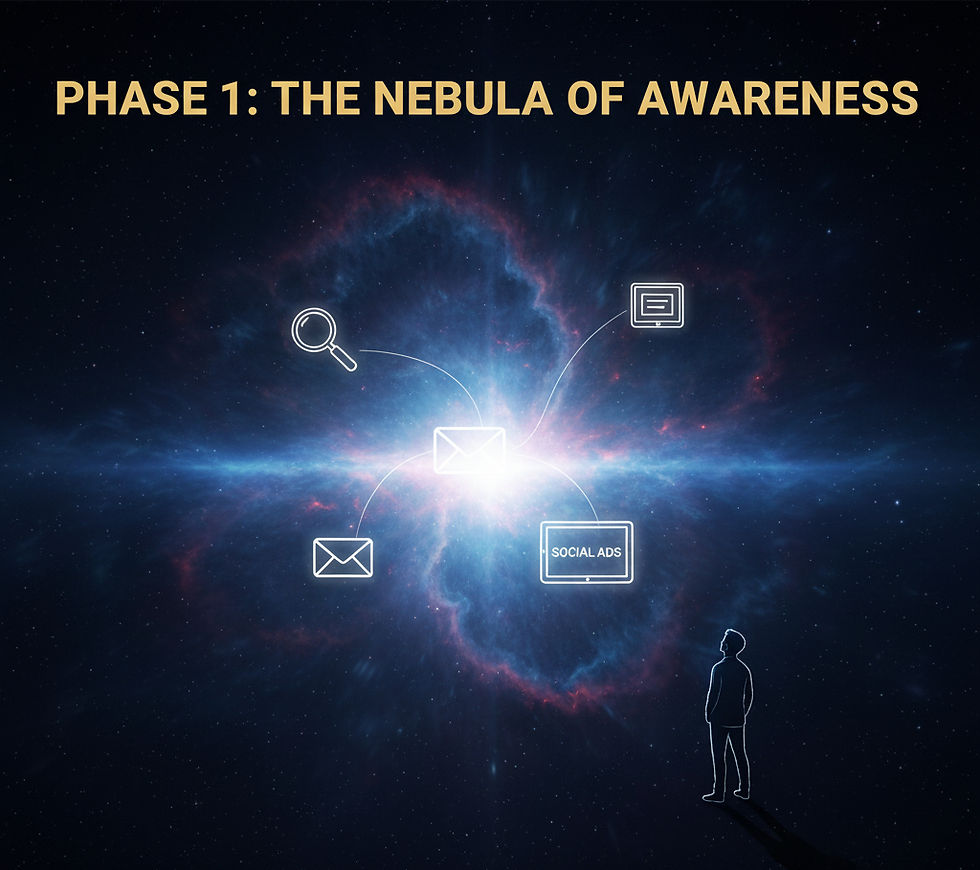What Is SEO and Why Does It Matter?
- Karim El Masry
- Jul 9
- 2 min read

In the vast digital landscape of today, where millions of websites compete for attention, Search Engine Optimization (SEO) is no longer optional—it’s essential. Whether you’re a startup, a content creator, or a global brand, SEO is the key to increasing visibility, attracting traffic, and building long-term digital success.
What is SEO?
SEO (Search Engine Optimization) is the process of optimizing your website and its content so that it appears higher in search engine results pages (SERPs) like Google, Bing, or Yahoo.
In simple terms: SEO helps your website show up when someone searches for something related to your business or content.
Why is SEO Important?
1. Organic Traffic is Free (and Powerful)
Unlike paid ads, organic search traffic is free. Once your site ranks well, you can receive a steady stream of visitors without ongoing ad spend.
2. High-Intent Audience
People who use search engines are actively looking for answers, products, or services. Ranking for relevant keywords puts you in front of users when they’re most likely to convert.
3. Builds Trust and Credibility
Websites that rank high on Google are often perceived as more trustworthy. Good SEO includes creating high-quality content, optimizing user experience, and earning backlinks—signals that boost your authority online.
Key Elements of SEO
1. On-Page SEO
This focuses on content and HTML elements of your pages:
Keyword research and optimization
Meta tags (title, description)
Header tags (H1, H2, H3…)
Internal linking
Image alt text and file names
2. Off-Page SEO
This focuses on external signals:
Backlinks (other websites linking to yours)
Social sharing
Online mentions and reviews
3. Technical SEO
This ensures search engines can crawl and index your site:
Fast page loading
Mobile-friendliness
XML sitemaps
HTTPS security
Clean URL structures
4. Content
SEO and content go hand in hand. High-quality, valuable content attracts visitors, earns backlinks, and keeps users engaged. Blogging, videos, infographics, and guides are all powerful content types for SEO.
How Search Engines Work
Search engines use bots to crawl web pages, index them in a database, and rank them based on hundreds of factors—such as relevance, user engagement, site authority, and more. The ultimate goal of a search engine is to deliver the most helpful result for any given query.
SEO Trends in 2025
As search engines evolve, so must your SEO strategies. Here are key trends:
AI-Powered Search (Google’s Search Generative Experience)
Voice Search Optimization
E-E-A-T (Experience, Expertise, Authoritativeness, Trustworthiness)
Mobile-First Indexing
Video SEO & YouTube Growth
Zero-Click Searches (featured snippets, answer boxes)
Getting Started with SEO
If you’re new to SEO, start with these steps:
Research keywords your audience is searching for.
Optimize existing pages (titles, content, images).
Start a blog and publish useful content consistently.
Build backlinks through guest posts, partnerships, or directories.
Use tools like Google Search Console, Google Analytics, Ahrefs, or SEMrush to monitor and improve your efforts.
Final Thoughts
SEO isn’t a one-time task—it’s an ongoing strategy. But when done right, it can generate consistent, high-quality traffic, increase brand awareness, and give you a competitive edge for years to come.
No matter your industry, SEO helps you get found. And in today’s digital world, being found is everything.



THANK YOU